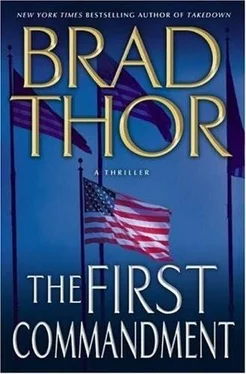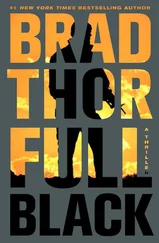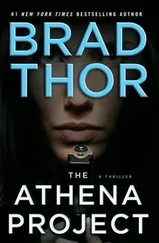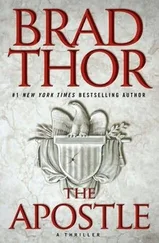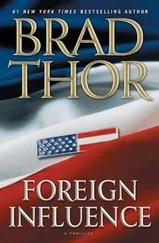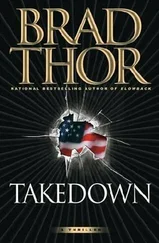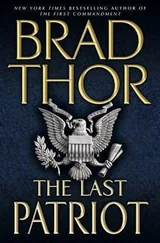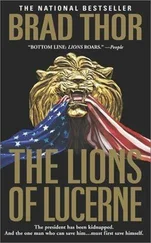“Listen,” said Parker, “as of ten minutes ago I’m off-duty. And what I do on my personal time is my business.”
“Then you’re fired. I’ll have the pink slip on your desk in the morning.”
Parker took another swig of beer. “Super, I’ll place it on the spike with all the rest of them.”
Both Finney and Parker were notorious for their professionalism, but as Harvath had gotten to know them he realized that they made an important distinction. They took their careers and what they did at Elk Mountain very seriously, but they never took themselves too seriously, especially when in the quiet company of good friends.
Finney looked over and saw Harvath smile. “It’s good to have you back.”
“Not much has changed, has it?” said Harvath.
Finney thrust his beefy hand into the backseat and motioned to Parker to hand him a beer. “We doubled all the locks on the wine cellar after your last visit, but other than that, no.”
Parker and Finney limited themselves to one beer each. Finney had his finished in two swallows, just as they arrived at yet another checkpoint. This time, they were all required to present photo identification. The guards were dressed in Blackhawk tactical gear, like the ones at the main gate, but in addition, these guards had been issued body armor and were openly carrying weapons.
Harvath knew that the men at the front gate were also strapped; they just kept their iron out of sight. Here, though, Finney’s people were making a very clear show of force. Two men carried H amp;K 416s, while a third held a highly modified Benelli twelve-gauge and never once took his eyes off the passengers in the Hummer. Harvath had no idea where Finney was getting his guards, but he seemed to be doing a damn good job.
As they pulled away from the checkpoint and drove toward the Sargasso facility, Harvath asked, “Ex SWAT?”
“Special Forces, actually,” replied Parker.
Harvath laughed dismissively. “C’mon.”
“He’s one hundred percent serious,” said Finney.
“Doing guard duty?”
“Guard duty is only one of the things they do here,” answered Parker. “They’re on a rotation, so it’s a shift everyone has to pull each month.”
“I know what those guys make in the private sector. You’ve got some very expensive gatekeepers.”
Finney smiled. “And worth every penny of it.”
“But make no mistake,” added Parker. “They’ve got it pretty good here. We’ve got an excellent bonus and compensation package that far outpaces what these guys would be pulling in anywhere else.”
Harvath looked at Finney, who added, “We don’t even advertise for them anymore. They come to us.”
The SUV came to a stop in front of the poorly lit entrance of what looked like an old mineshaft.
Harvath was about to ask where they were when he saw a faded sign hanging over the opening that proclaimed Sargasso Mining Company. He was looking at the understated entrance to Finney’s hot new intelligence venture.
One hundred feet down the sloping tunnel that led into the Sargasso shaft, Harvath half-expected a tour guide with an authentic miner’s headlamp or a bearded, dust-covered, suspender-wearing actor to appear and regale them with stories of the Old Lucky Seven Mine. At 101 feet, Harvath’s attitude changed.
He had to give Tim Finney credit. They weren’t greeted by a stainless-steel, pneumatically sealed, hi-tech, James Bond-style door. Instead, it was a door composed of five aged wooden planks with splintered crosspieces that looked ready to fall off its hinges.
A rather unremarkable sign was nailed to it that stated Danger. Keep Out.
Finney produced a set of keys and unlocked a rusted padlock that kept a heavy iron chain in place across the door. He continued to lead down a wide, rough-hewn passageway. The trio followed a set of tracks that Harvath figured must have once been used to haul supplies in and gold out.
The large tunnel continued sloping gently downward. After another hundred feet the tunnel widened and a series of lights could be seen up ahead.
When they got there they were greeted by another brace of guards. Though they looked just as serious as the last set of guards, these men simply waved them along.
“They get a couple hundred feet below ground and your guys start to slack off, don’t they?” Harvath joked.
Finney and Parker both smiled. “You have no idea how many passive security checks you have gone through on the way down here,” said Parker. “Not only have your body temperature and heart rate been monitored since entering the mine, but we know if you’re carrying any sort of weapon, explosives, powders, liquids, or gels on your person as well.”
“Everything except whether I’m wearing boxers or briefs,” stated Harvath.
“We’ve got that too,” replied Finney as he pretended to consult the earpiece attached to his radio. “Apparently, it’s a blue thong with the words Go Navy embroidered in sequins.”
Harvath grinned and gave him the finger. They kept walking until they arrived at a miners-style elevator. Finney raised the grate and they all stepped inside. Removing a keycard from his pocket, Finney swept it through a magnetic reader and then presented his right thumb and pupil for biometric verification. Once he had been approved, the elevator began to descend.
It came to a stop at the bottom of the shaft, where they were met by a low-exhaust Dodge Ram pickup specifically designed for subterranean driving.
As the truck’s driver took them deeper into the mine, Finney explained the purpose of the Sargasso program. “We’ve had teams visit us from Fort Bragg, Camp Perry with the CIA, as well as Fort Story with the SEALs, and they all love the training here, but at the end of the day, no matter how good their people are, their success or failure comes down to one critical component-intelligence.
“That gave me an idea, and I started making a few phone calls to people I know back east. We hear a lot about the high attrition rates in the special operations community as operators leave the armed forces and go to work for groups like Blackwater or Triple Canopy where they can make a hell of a lot more money. What you don’t hear about are the attrition rates in the intelligence community.
“I never had any desire to run a private military company, per se. But a private intelligence company, now that’s something completely different, and it seemed to dovetail well with what we were already doing here.”
Harvath held on to the headrest in front of him as they hit a series of potholes. Once the surface had smoothed out, he asked, “I understand how Valhalla and Site Six make money for you, but how do you make money with your own intelligence company?”
“We do it in two ways,” replied Finney. “First, I don’t have to focus on the entire world. I focus solely on the sweet spots where the most action is happening. All the terrorism and terrorist-related intelligence that we gather and analyze is from areas where the U. S. government is backlogged and overloaded.
“Second, there’s no congressional oversight of what we do. We have a lot more latitude in our operations. There are agencies willing to pay a lot of money for us to gather intel for them. As far as our ops tempo is concerned, we’re double the volume of where Ron and I projected we’d be by this time. We can’t get guys out of the CIA, NSA, FBI, and the like fast enough to come work here.”
Harvath shook his head. Finney was amazing.
The truck came to a stop before a final checkpoint in front of what looked like a pair of heavy blast doors. Once they had been waved through, Finney led the way into the heart of the Sargasso Program’s Operations Center.
Читать дальше
